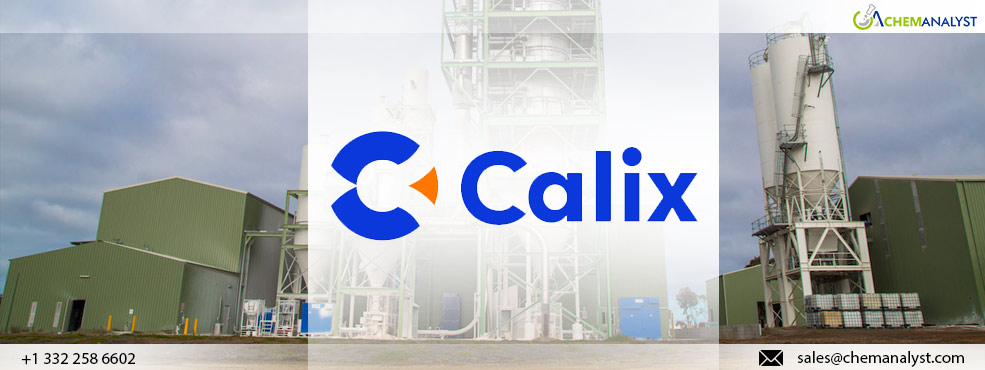Welcome To ChemAnalyst

Calix has secured a $15 million government grant to spearhead the development of a pioneering, renewable-powered Carbon Capture and Use (CCU) demonstration facility in South Australia. This substantial investment will accelerate the commercialization of Calix's CCU technology, positioning the company as a global leader in low-carbon industrial solutions. The plant aims to produce near-zero emissions lime and provide captured industrial CO2 emissions for the HyGATE-funded Solar Methanol Project. This initiative represents a major advancement in carbon capture technology and underscores the Australian Government’s commitment to innovative climate solutions.
Lime is generated by heating limestone to produce quicklime (calcium oxide). During this process, carbon dioxide is inevitably released from the raw material, which constitutes the primary source of emissions in the cement and lime industries. The Leilac technology integrates electrification with carbon capture to prevent fuel emissions and capture unavoidable process emissions. The groundbreaking CCU project seeks to convert this captured CO2 into a low-carbon transport fuel for the shipping sector, thereby significantly lowering the carbon footprint across various industries and showcasing a cost-effective decarbonization pathway for cement and lime production.
In the project's second phase, the ZETA program will expand production capabilities to include the processing of cement raw meal into near-zero emissions cement clinker. By incorporating cement clinkering into the Leilac technology, this phase aims to create a new route to zero-emissions clinker production, optimizing cost, energy consumption, and environmental impact.
The innovative, renewably powered CCU project is designed to generate dual revenue streams by producing near-zero emissions lime and selling captured CO2 as a chemical feedstock. This approach not only supports sustainable lime production but also monetizes captured CO2, further enhancing the project's economic viability and environmental impact.
Project Zeta will deploy Leilac technology to capture up to 20,000 annual tonnes of CO2 emissions. Of this, up to 15,000 tonnes will be sold to the Solar Methanol Project to produce green methanol, while the remaining captured CO2 may be supplied to other local industry users. The Solar Methanol Project, part of the Australian-German funded HyGATE initiative, is being developed by a consortium that includes Vast and the German energy company Mabanaft. This collaboration highlights the integration of advanced carbon capture technology with innovative green fuel production.
Phil Hodgson, CEO and Managing Director of Calix, outlined the ambitious goals of their innovative project under the Australian Government’s Future Made in Australia program. The project focuses on leveraging Calix’s renewably powered technology platform to electrify mineral processing and capture emissions, helping carbon-intensive industries like cement and lime achieve net-zero targets. Hodgson emphasized that producing zero-emissions lime is crucial for advancing an Australian green metals industry, supporting green steel and aluminum production. Additionally, by combining captured CO2 with Australian solar energy through the SM1 project, Calix aims to create a cost-effective decarbonization pathway for cement and lime and develop novel low-carbon transport fuels.
Craig Wood, CEO of Vast, expressed enthusiasm about partnering with Calix on the SM1 project. He highlighted the innovative approach of using CO2 captured from Calix’s near-zero emissions lime plant to produce green methanol, which will play a crucial role in decarbonizing the maritime sector. Wood commended the Australian Government for its support, recognizing its role in facilitating the development of solutions to reduce carbon emissions in global shipping and aviation industries. The collaboration aims to advance sustainable practices and contribute significantly to the broader goal of global decarbonization.
We use cookies to deliver the best possible experience on our website. To learn more, visit our Privacy Policy. By continuing to use this site or by closing this box, you consent to our use of cookies. More info.
